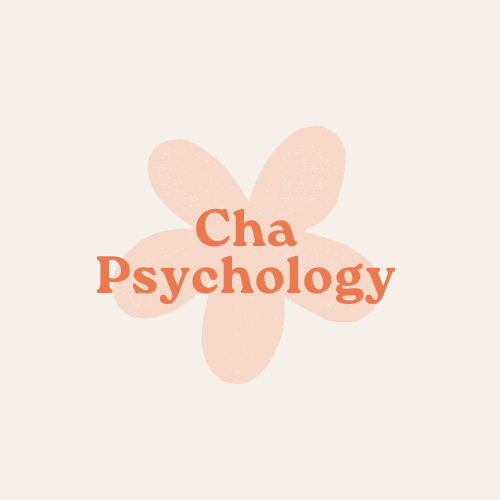A Thousand Different Happinesses, aka, Marriage is Not Everything
Is This Super Annoying Coming From a (Common Law) Married Woman?
If it is, I get it. I’d be side-eyeing me too. I’d be like, “It’s easy for you to say!”
Or maybe I wouldn’t? Maybe I would have read The Other Significant Others: Reimagining Life With Friendship at the Center and realized that friendships can bring us as much material and emotional support and fulfillment as romantic relationships. Maybe I would have heard the Ezra Klein podcast episode in which he interviews the author, Rhaina Cohen, and felt actual relief that my romantic relationship does not have to address all my relational and emotional needs and wants. Maybe I would have talked to my therapist about how my wish for a perfect partner is on the surface about wanting a life parter but below the surface, it is about many other things, such as the wish to fit in and belong, the fantasy that the other can complete/fix/save me, my anxiety about financial stability addressed by the solution of “double income.”
What if we didn’t have to couple up? What if you did not have to despair about being single? Also, what if you could feel freer to leave your dysfunctional and/or dissatisfying marriage because you no longer need to believe “Sure, we have our problems but it’s not as bad as being out there?” In his book, Happy Singlehood, Elyakim Kislev reflects on the omnipresence of a “family normative prejudice” that has people going on exhausting dates with people from apps and opining that a future as a single older adult means dying alone in misery. One premise of the book is that despite societal disapproval of remaining single, globally, more and more people are choosing to remain single across the lifespan. How can we as a society adapt to the reality of people who, whether by choice or circumstance, find themselves single? We have a long way to go, I think.
The Stigma of Singlehood
This topic shows up in therapy with my clients quite a bit. Many of my clients have internalized the message that because they are not married or in a long-term romantic relationship, there is something wrong with them. Singlehood can be unfairly associated with being emotionally immature, not being capable of a relationship, or being undesirable. Also, when a person is already struggling with self-esteem and trauma from childhood, being single can feel like yet another indicator that they have somehow failed or are inadequate. In addition, in AANHPI communities, which remain a stronghold of heteronormativity, our Asian parents, grandparents, aunties and uncles, may convey their expectations and/or wishes for us to be romantically attached without bothering to understand whether or not that is a sensible life path for the individual person.
Nonetheless, our immigrant families’ values do not reflect the reality of contemporary trends back in the home country. The demographic of single adults is growing in numbers in Japan, South Korea, and China. This certainly goes hand-in-hand with drastic declines in birth rate in Japan and South Korea and is a cultural departure from the traditional, collectivistic mindset of older generations. In general, where women have more autonomy over their lives, the choice to not marry or have children is becoming more common.
Marriage Does Not Cure Loneliness
We grow up with the expectation that marriage can save us from feeling lonely. Then it’s all the more confusing when these feelings take root despite one’s married status. What many of us may not have been told explicitly about marriage is that when we hope one person can meet most of our emotional, intellectual, social, and companionship needs, we bring an unrealistic and unhelpful belief to the table. A more helpful approach to life might be that there are a variety of relationships that can meet our needs for intimacy and the vast majority of them will not be romantic.
This is purely anecdotal but I would also suggest that marriage is not necessarily satisfying for straight cis women who feel better supported and understood by their broader support system than their husbands. Relatedly, more recent research seems to suggest that singlehood for women brings more happiness and satisfaction than it does for men. Among the factors that contribute to this finding are women’s stronger social ties regardless of relationship status and women’s inclination to have deeper connections to the people in their lives than men. There’s been a lot of acknowledgement lately about men lacking close relationships and the impact of that reality on mental health. For instance, two-thirds of American young men agree with the statement “No one really knows me.” American men today, compared to American men of 30 years ago, report having significantly fewer friends. These examples may point to broader concerns about men’s mental health, and they also bring into sharp focus the sad reality that the capacity for meaningful social connections is gendered. Overall, these data points suggest that men benefit more from marriage than women do.
Self-Acceptance and Flexibility
The bottom line about being single is that it can lead to a fulfilling, rich life full of meaningful relationships. This was not the view of most of humanity throughout history. This is likely not the view of your parents. To ask a straight woman to be comfortable with remaining single for the rest of her life may be received as asking her to live as an outcast. She may need to do a great deal of inner work to embrace the possibilities single life offers. In the end, the inner work one does to make a fulfilling life being single may be similar to the inner work one does to make a marriage work. The difference is that in singlehood, our constant companion is ourselves and that is a beautiful opportunity to accept and love oneself and find purpose.

